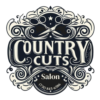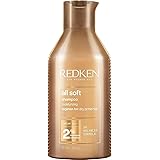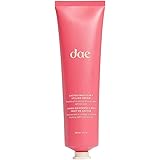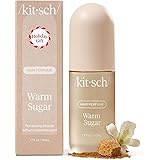Introduction to the Hybrid Salon Concept
The beauty industry is undergoing a significant transformation, characterized by the rise of hybrid salons. These establishments represent an innovative fusion of traditional hair and beauty services with a broader range of wellness and lifestyle offerings. In essence, a hybrid salon is not merely a place for haircuts or beauty treatments; it is a multifunctional space designed to cater to a diverse clientele seeking various services under one roof.
Hybridity in salons signifies the evolution from standalone beauty services to more comprehensive lifestyle experiences. This trend addresses the growing consumer demand for convenience and holistic approaches to personal care. In these hybrid spaces, clients can indulge in hairstyling, skincare, and makeup while simultaneously enjoying wellness services such as massage therapy, yoga classes, or nutrition consultations. This integrative approach enhances the overall experience, allowing clients to prioritize their well-being alongside beauty treatments.
<pmoreover, a="" activities="" among="" and="" are="" belonging="" beyond="" by="" clients="" clients.="" community="" community.<pthe a="" aesthetic.="" also="" ambiance="" and="" areas="" as="" but="" client="" cohesive="" dedicated="" design="" destinations.<pas a="" an="" and="" beauty="" broader="" clients="" concept="" continues="" emergence="" evolve,="" exciting="" experience.
The Shift in Consumer Behavior
Recent years have witnessed significant changes in consumer behavior within the beauty market, primarily driven by the evolving needs and preferences of clients. The modern consumer is increasingly seeking convenience in their beauty routines, leading to a demand for services that minimize time and effort. This desire for efficiency has prompted salons to adapt by offering multifunctional services, allowing clients to access a variety of treatments under one roof. For instance, the traditional dichotomy between hair care, skincare, and wellness services is increasingly blurred, as clients aspire to consolidate their beauty experiences.
Moreover, the notion of holistic experiences has gained prominence among consumers. The modern client is not merely interested in individual services but is inclined toward comprehensive experiences that promote overall well-being. Salons that incorporate elements of relaxation, such as aromatherapy, relaxation zones, and minimized waiting times, can appeal to these evolving preferences. This shift has resulted in beauty businesses reevaluating their service offerings to create an atmosphere that prioritizes mindfulness and rejuvenation alongside traditional beauty treatments.
Personalization has also emerged as a crucial aspect of consumer expectation in the beauty market. Clients are increasingly looking for tailored services that cater to their unique needs and preferences. Salons that invest in understanding their clientele—through customization of services, personalized consultations, and follow-up communications—are likely to foster loyalty and encourage repeat visits. Utilizing technology, such as client relationship management systems, can help salons enhance their personalization efforts by tracking client preferences and providing bespoke recommendations.
The intersection of convenience, holistic experiences, and personalization defines the contemporary beauty landscape. As clients continue to migrate towards these values, salons that proactively adapt to meet these consumer demands will be uniquely positioned to thrive in the future beauty market.
Integrating Wellness and Self-Care in Salons
In recent years, there has been a significant shift in consumer expectations towards a more holistic approach to beauty and self-care. Salons are increasingly recognizing the importance of integrating wellness services into their offerings, effectively transforming into hybrid lifestyle spaces. This evolution allows salons to provide a comprehensive experience that not only focuses on aesthetics but also promotes physical and mental well-being.
The fast-paced nature of modern life often leads to heightened stress levels and a disconnect from self-care. By incorporating wellness services such as massages, facials, and even yoga classes, salons can cater to the growing demand for rejuvenation and relaxation. These services not only enhance the traditional salon experience but also create a serene environment where clients can unwind and focus on their overall health.
Moreover, wellness integration in salons aligns with a broader consumer trend towards self-care and mindfulness. As clients seek out locations that prioritize their well-being, salons that offer a combination of beauty and wellness services stand to gain a competitive edge. Treatments such as aromatherapy or organic skincare can enhance the client experience, fostering a deeper connection between the service provider and the client.
Additionally, training salon staff to be knowledgeable about wellness practices can ensure an elevated service experience. Educated professionals can provide personalized recommendations that cater to individual client needs, thereby enhancing satisfaction and loyalty. The synergy of beauty treatments and wellness services not only supports the physical aspects of self-care but also addresses emotional well-being, thus creating a holistic sanctuary for clients.
In conclusion, the integration of wellness and self-care into salon services presents an opportunity for salons to redefine their roles in clients’ lives. By embracing this holistic approach, salons can contribute significantly to the overall health and well-being of the community they serve.
The Role of Technology in Hybrid Salons
The integration of technology in hybrid salons is revolutionizing the beauty industry, enabling enhanced customer experiences and increased operational efficiency. One of the most significant advancements is the implementation of sophisticated booking systems. These systems allow clients to schedule appointments seamlessly online, reducing wait times and facilitating better time management for salon staff. The convenience of digital booking fosters customer satisfaction and encourages frequent visits, thus supporting salon growth.
Moreover, virtual consultations have emerged as a vital component in hybrid salon models. With the rise of telecommunication technology, patrons can consult with hairstylists or makeup artists from the comfort of their homes. This innovation not only broadens a salon’s clientele but also allows for personalized guidance based on individual preferences and needs. Customers can view expert recommendations for products, colors, or styles tailored specifically for them, enhancing engagement and building long-lasting relationships.
In addition to booking and consultation technologies, augmented reality (AR) has transformed the way clients experience beauty services. This cutting-edge technology allows customers to virtually try on hairstyles and makeup looks before committing to any changes. By leveraging AR applications, salons can enhance customer engagement while reducing the risk of dissatisfaction with final results. This feature equips clients with confidence, as they can visualize their desired looks in real time, ultimately leading to increased sales of products and services.
Furthermore, technology plays a crucial role in the day-to-day operations of hybrid salons. From inventory management software to customer relationship management (CRM) tools, these systems streamline internal processes, allowing staff to focus on providing exceptional service. By optimizing operational efficiency through technology, hybrid salons can allocate more resources toward crafting unique and memorable experiences for their clients, ensuring satisfaction on every visit.
Designing Multifunctional Spaces
As the beauty industry shifts towards hybrid salons, which combine traditional services with lifestyle offerings, the importance of designing multifunctional spaces cannot be overstated. Architectural and interior design elements play a crucial role in creating an inviting atmosphere that caters to a diverse clientele. To achieve this, careful consideration of layout, decor, and overall ambiance is essential.
The layout of a hybrid salon should prioritize flexibility and adaptability. This includes zoning different areas for distinct services, such as haircuts, manicures, and wellness treatments. By utilizing modular furniture and movable partitions, salon owners can easily reconfigure the space according to daily needs or special events. Such an approach not only maximizes the utility of the salon but also enhances the customer experience, allowing for a seamless flow from one service to another.
Decor is another pivotal component in establishing a cohesive aesthetic that reflects the salon’s brand identity while promoting relaxation. Thoughtful choices in color palettes, textures, and materials can evoke feelings of calmness and comfort. For instance, incorporating natural elements such as plants and natural light can create a soothing environment that encourages clients to unwind. Additionally, wall art that resonates with the local community or reflects contemporary trends can serve as conversation starters and enhance the overall allure of the space.
Furthermore, the atmosphere within the salon should be intentionally curated to promote a sense of tranquility. This can be achieved through ambient lighting, soft music, and even scent. By concentrating on these sensory elements, salon owners can cultivate a welcoming environment that engenders trust and loyalty among clients. In essence, the design of multifunctional spaces is integral to the success of hybrid salons, offering both versatility in service delivery and an enjoyable experience for clients.
Sustainability in the Future Salon Experience
As awareness of environmental issues rises, the beauty industry is increasingly prioritizing sustainability in its practices and offerings. The future of salons will inevitably embody this shift, as they adopt hybrid and lifestyle spaces that not only deliver beauty services but also prioritize eco-conscious initiatives. Salons are becoming more mindful of their impact on the planet, striving to integrate sustainable practices into their everyday operations.
One of the core aspects of sustainability in salons involves the selection of eco-friendly products. This includes utilizing organic ingredients, cruelty-free formulations, and recyclable packaging. By opting for brands that prioritize ethical sourcing and environmentally safe practices, salons can significantly reduce their carbon footprint and attract a clientele that values environmental responsibility. Clients are now more informed than ever about the products used in their beauty routines, leading to an increased demand for transparency and sustainability within the industry.
Another key area of focus is the design of salon spaces. Energy-efficient designs can reduce energy consumption, which is crucial in a setting that typically relies heavily on electricity for lighting, heating, and various equipment. Utilizing solar panels, energy-efficient lighting, and water-saving fixtures can further minimize a salon’s environmental impact. In addition, incorporating sustainable materials in construction and decor, such as bamboo or reclaimed wood, creates a warm and welcoming atmosphere while emphasizing a commitment to sustainability.
Moreover, implementing green practices such as waste reduction, recycling, and composting programs can enhance a salon’s sustainability profile. By engaging clients in these efforts, salons can foster a sense of community and responsibility, encouraging customers to support eco-friendly choices. In essence, the synergy of sustainability and beauty will not only appeal to conscientious consumers but will also set a precedent for industry standards going forward.
Challenges and Considerations for Salon Owners
As the beauty industry evolves, many salon owners are considering the transition to a hybrid model that integrates both traditional in-salon services and innovative offerings such as online consultations and retail experiences. However, this shift presents a variety of challenges that must be addressed to ensure a smooth transition and continued success.
One of the primary challenges facing salon owners is the necessity for staff training. Employees must be equipped with the necessary skills to navigate a hybrid environment effectively. This involves not only maintaining exceptional service standards for in-person clients but also adapting to new digital platforms for online services. Training programs should be developed, focusing on both technical skills and customer service excellence, ensuring that staff can confidently provide a cohesive experience across both channels.
Moreover, managing a diverse range of services can be daunting. In a hybrid model, salons may offer traditional hairdressing, wellness services, and digital consultations, which necessitates a strategic approach to scheduling and service promotion. It is important for salon owners to streamline operations, ensuring that services do not conflict and that clients can access the information they need easily. Implementing an effective booking system can alleviate scheduling challenges and enhance customer satisfaction.
High standards of service must also be maintained across both in-salon and online offerings. Salon owners should focus on establishing clear guidelines and expectations for all staff members. Regular feedback sessions and client surveys can provide valuable insights into service quality, enabling continuous improvement. Furthermore, investing in technology that supports communication and service delivery can help to uphold standards, regardless of how clients choose to engage with the salon.
In navigating these challenges, salon owners can leverage careful planning, strategic training initiatives, and effective management systems to create a successful hybrid and lifestyle space that meets the evolving needs of their clientele.
Successful Hybrid Salon Models
The concept of hybrid salon models has gained significant traction as businesses adapt to evolving consumer preferences. A prime example is the Salon XYZ, which has integrated wellness services alongside traditional hair and beauty treatments. By offering yoga classes and meditation sessions, Salon XYZ has attracted a clientele that values holistic self-care, thus increasing customer visits and overall satisfaction. This diversification has not only boosted their revenue streams but also enhanced their brand image, positioning them as a community-focused establishment.
Another noteworthy model is the Style & Coffee, where guests can enjoy premium coffee while receiving hair services. This innovative approach combines the experience of a café with salon treatments, creating a relaxed atmosphere conducive to social interaction. Customer feedback indicates that this hybrid model has significantly enhanced the overall experience, leading to higher retention rates and positive word-of-mouth marketing. By crossing the traditional boundaries of salon services, Style & Coffee has successfully catered to the changing lifestyles of consumers who seek convenience along with pampering.
Furthermore, Urban Spa Retreat has pioneered a unique fusion of beauty and wellness. With offerings that include facials, massages, and nail care services within a serene, spa-like environment, they cater to individuals seeking a rejuvenating escape. Their marketing strategy effectively emphasizes self-care and mental well-being, attracting clients looking for more than just a haircut or styling. The dedicated focus on customer experience, combined with a comprehensive service menu, has proven to be a successful recipe for this hybrid model.
These case studies underline the potential of hybrid salon models to evolve with consumer demands. By incorporating diverse amenities and services, salons can create engaging environments that appeal to a broader audience, ensuring sustainability and growth in a competitive landscape.
Looking Ahead: The Future of Beauty Spaces
The beauty industry is continuously evolving, and salons are at the forefront of innovation as they adapt to shifting consumer preferences and technological advancements. One prominent trend is the emergence of hybrid beauty spaces, which seamlessly blend traditional salons with wellness and lifestyle offerings. This approach not only accommodates a broader range of services but also creates an inclusive atmosphere that caters to diverse consumer needs. Salons of the future may incorporate wellness amenities such as meditation rooms, fitness classes, or nutritional counseling, promoting a holistic view of beauty and health.
Moreover, the role of beauty professionals is also evolving. As consumers increasingly seek personalized experiences, beauty experts will need to develop a deeper understanding of individual client preferences, skin types, and wellness goals. Professionals will be expected to possess a strong knowledge base that spans beyond traditional beauty services, equipping them to advise clients on a myriad of lifestyle aspects. This shift will foster stronger client relationships, as the salon experience transforms into a personalized journey rather than a mere transaction.
Technological advancements are set to further redefine beauty spaces. Digital tools like augmented reality (AR) may allow clients to visualize different hairstyles or makeup looks before committing to a change, enhancing decision-making. Salons might also adopt advanced booking systems, personalized apps, and virtual consultation tools to streamline operations and improve customer experience. As online platforms continue to integrate with physical spaces, salons will need to prioritize a cohesive omnichannel experience, ensuring clients enjoy seamless interactions whether online or in-person.
By embracing these trends and innovations, salons can remain relevant and effectively address the changing desires of today’s consumers. The future of beauty spaces promises to be dynamic and multifaceted, setting the stage for a new era in self-care and aesthetics.






